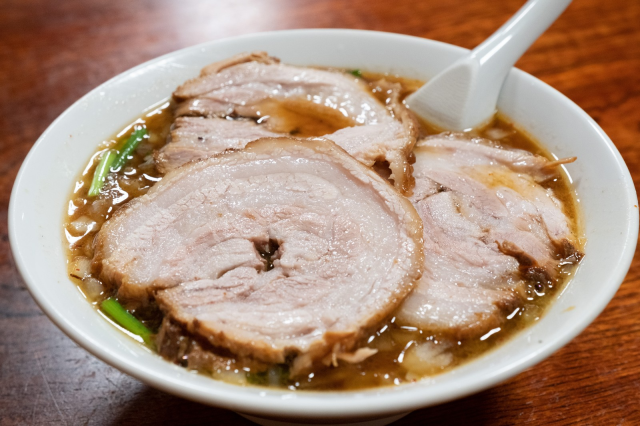
Your medal-worthy Olympic venue videos will have to stay within the confines of your phone, say organizers of 2020 Olympics.
Initially, this article reported that attendees were prohibited from posting both photos and videos, but we’ve since been contacted by the 2020 Tokyo Olympics organizers and informed that photos may be posted on social media. We apologize for any confusion.
The application period for the first round of 2020 Tokyo Olympics tickets just finished, and we’re sitting around anxiously waiting for the results to see which, if any, events we’ll get to go to in-person. As we were killing time, though, we took another look through the extensive fine print on the application form, and we came across something that’ll probably put a damper on a lot of fans’ enjoyment.
The various terms and clauses for the application include a section that states that ticket holders are allowed to take photos, as well as record video and audio, inside event venues, as long as it’s for personal use. That’s pretty standard, though the terms also state that intellectual property right ownership of said photos or recordings is to be held by the Olympic Organizing Committee. Again, though, many would say that’s not so terribly strict.
What’s likely to ruffle many more feathers, though, regards what the Tokyo Olympics apparently feels falls outside “personal use.” The form goes on to say:
“Ticketholder may not transmit or distribute video or audio recordings taken within event venues without the prior consent of the IOC. This includes transmission through television, radio, the Internet (including social media and live-streaming), and other electronic media, including forms which are not currently in existence.”
▼ Yes, even crazy future tech is covered by the ban.
In other words, you’re free to take as many videos of the Olympics as you want, and share them with your friends, as long as you share them the old-fashioned way: by showing them to people you’re hanging out with face-to-face. Want to post them on Twitter or Facebook, even if your only followers are your close personal friends or immediate family members? Sorry, you’ll need to contact the IOC and ask for permission first, so keep your fingers crossed the organization is so well-staffed that they’ve got a team of employees just sitting around waiting to provide clearance so you can share some videos for Grandma or your friends from high school to see.
▼ Luckily, videos of all the great ramen you ate after going to the event are beyond the reach of the IOC’s power.
Granted, it’s not unusual for live events to restrict recording, but that’s not what the Tokyo Olympics is doing. You can record as much video as you want, you just can’t post it on social media. And while Japan has always been particularly restrictive of amateur photography in the show business world (you won’t find a single photo of many Japanese celebrities on their Japanese-language Wikipedia pages), the sports sphere is usually a lot more accommodating.
Sure, it’s understandable that the Olympics’ organizers don’t want people live-streaming entire competition from the stands, but a few seconds of video posted on social media after the contest has been decided, taken from a spectator seat, doesn’t seem likely to turn people away from the official broadcasts from professional media organizations who paid for those rights and want to protect their investments.
Nevertheless, the rules are the rules, and the organization is saying no to sharing those moments from your Tokyo Olympics experience online. On the plus side, at least this might have the silver lining of encouraging fans to keep their phones/cameras in their bags and their eyes on the Games instead of a screen.
Reference: Tokyo Organising Committee of the Olympics and Paralympic Games
Top image: Pakutaso
Insert images: Pakutaso (1, 2)
● Want to hear about SoraNews24’s latest articles as soon as they’re published? Follow us on Facebook and Twitter!



 Tokyo Olympics WILL allow you to share photos you take at the Games on social media
Tokyo Olympics WILL allow you to share photos you take at the Games on social media Tokyo Olympics opening ceremony preliminary ticket prices announced, wallets cry across Japan
Tokyo Olympics opening ceremony preliminary ticket prices announced, wallets cry across Japan Tokyo Olympics might allow you to take one, and only one, drink with you into sweltering stadiums
Tokyo Olympics might allow you to take one, and only one, drink with you into sweltering stadiums Tokyo train stations get new Olympic melodies and signage for the Games
Tokyo train stations get new Olympic melodies and signage for the Games Japanese Internet reacts in dismay to official Olympics Twitter quietly changing its header
Japanese Internet reacts in dismay to official Olympics Twitter quietly changing its header Seaside scenery, history, and so many desserts on Yokohama’s Akai Kutsu【Japan Loop Buses】
Seaside scenery, history, and so many desserts on Yokohama’s Akai Kutsu【Japan Loop Buses】 Foreigner’s request for help in Tokyo makes us sad for the state of society
Foreigner’s request for help in Tokyo makes us sad for the state of society Japan’s summertime towelket pillowcases are even better with the addition of Ghibli stars【Photos】
Japan’s summertime towelket pillowcases are even better with the addition of Ghibli stars【Photos】 Ghibli Park now selling “Grilled Frogs” from food cart in Valley of Witches
Ghibli Park now selling “Grilled Frogs” from food cart in Valley of Witches Japanese city loses residents’ personal data, which was on paper being transported on a windy day
Japanese city loses residents’ personal data, which was on paper being transported on a windy day Beautiful Ghibli sealing wax kits let you create accessories and elegant letter decorations【Pics】
Beautiful Ghibli sealing wax kits let you create accessories and elegant letter decorations【Pics】 Japanese ramen restaurants under pressure from new yen banknotes
Japanese ramen restaurants under pressure from new yen banknotes Suntory x Super Mario collaboration creates a clever way to transform into Mario【Videos】
Suntory x Super Mario collaboration creates a clever way to transform into Mario【Videos】 A Ghibli mystery solved — the identity of exotic looking food in Spirited Away revealed!
A Ghibli mystery solved — the identity of exotic looking food in Spirited Away revealed! Akihabara pop-up shop sells goods made by Japanese prison inmates
Akihabara pop-up shop sells goods made by Japanese prison inmates McDonald’s new Happy Meals offer up cute and practical Sanrio lifestyle goods
McDonald’s new Happy Meals offer up cute and practical Sanrio lifestyle goods French Fries Bread in Tokyo’s Shibuya becomes a hit on social media
French Fries Bread in Tokyo’s Shibuya becomes a hit on social media Studio Ghibli releases new action figures featuring Nausicaä of the Valley of the Wind characters
Studio Ghibli releases new action figures featuring Nausicaä of the Valley of the Wind characters Red light district sushi restaurant in Tokyo shows us just how wrong we were about it
Red light district sushi restaurant in Tokyo shows us just how wrong we were about it New private rooms on Tokaido Shinkansen change the way we travel from Tokyo to Kyoto
New private rooms on Tokaido Shinkansen change the way we travel from Tokyo to Kyoto Tokyo Tsukiji fish market site to be redeveloped with 50,000-seat stadium, hotel, shopping center
Tokyo Tsukiji fish market site to be redeveloped with 50,000-seat stadium, hotel, shopping center Studio Ghibli releases Kiki’s Delivery Service chocolate cake pouches in Japan
Studio Ghibli releases Kiki’s Delivery Service chocolate cake pouches in Japan New definition of “Japanese whiskey” goes into effect to prevent fakes from fooling overseas buyers
New definition of “Japanese whiskey” goes into effect to prevent fakes from fooling overseas buyers Our Japanese reporter visits Costco in the U.S., finds super American and very Japanese things
Our Japanese reporter visits Costco in the U.S., finds super American and very Japanese things All-you-can-drink Starbucks and amazing views part of Tokyo’s new 170 meter-high sky lounge
All-you-can-drink Starbucks and amazing views part of Tokyo’s new 170 meter-high sky lounge More foreign tourists than ever before in history visited Japan last month
More foreign tourists than ever before in history visited Japan last month New Pokémon cakes let you eat your way through Pikachu and all the Eevee evolutions
New Pokémon cakes let you eat your way through Pikachu and all the Eevee evolutions Disney princesses get official manga makeovers for Manga Princess Cafe opening in Tokyo
Disney princesses get official manga makeovers for Manga Princess Cafe opening in Tokyo Sales of Japan’s most convenient train ticket/shopping payment cards suspended indefinitely
Sales of Japan’s most convenient train ticket/shopping payment cards suspended indefinitely Sold-out Studio Ghibli desktop humidifiers are back so Totoro can help you through the dry season
Sold-out Studio Ghibli desktop humidifiers are back so Totoro can help you through the dry season Japanese government to make first change to romanization spelling rules since the 1950s
Japanese government to make first change to romanization spelling rules since the 1950s Ghibli founders Toshio Suzuki and Hayao Miyazaki contribute to Japanese whisky Totoro label design
Ghibli founders Toshio Suzuki and Hayao Miyazaki contribute to Japanese whisky Totoro label design Doraemon found buried at sea as scene from 1993 anime becomes real life【Photos】
Doraemon found buried at sea as scene from 1993 anime becomes real life【Photos】 Tokyo’s most famous Starbucks is closed
Tokyo’s most famous Starbucks is closed One Piece characters’ nationalities revealed, but fans have mixed opinions
One Piece characters’ nationalities revealed, but fans have mixed opinions We asked a Uniqlo employee what four things we should buy and their suggestions didn’t disappoint
We asked a Uniqlo employee what four things we should buy and their suggestions didn’t disappoint Princesses, fruits, and blacksmiths: Study reveals the 30 most unusual family names in Japan
Princesses, fruits, and blacksmiths: Study reveals the 30 most unusual family names in Japan Georgian Paralympic judo athlete arrested for attacking a security guard in a Tokyo hotel
Georgian Paralympic judo athlete arrested for attacking a security guard in a Tokyo hotel Looks like it’s time to say good-bye, and maybe good riddance, to the 2020 Tokyo Olympics logo
Looks like it’s time to say good-bye, and maybe good riddance, to the 2020 Tokyo Olympics logo The 2020 Tokyo Olympics announces the winner of its adorable mascot election
The 2020 Tokyo Olympics announces the winner of its adorable mascot election Kumamoto mascot Kumamon’s chance of being Olympic torch runner in jeopardy
Kumamoto mascot Kumamon’s chance of being Olympic torch runner in jeopardy Applications for the ticket lottery for Tokyo 2020 Olympics matches and ceremonies are now open!
Applications for the ticket lottery for Tokyo 2020 Olympics matches and ceremonies are now open! Tokyo Olympics to allow spectators, provided they “cheer quietly”
Tokyo Olympics to allow spectators, provided they “cheer quietly” Tokyo Olympics will not allow spectators from overseas
Tokyo Olympics will not allow spectators from overseas Tokyo Olympics committee announces safety plans for the Games, including priority hospital beds
Tokyo Olympics committee announces safety plans for the Games, including priority hospital beds Seiji gets into the Olympic spirit on the cheap at 100-yen store Daiso
Seiji gets into the Olympic spirit on the cheap at 100-yen store Daiso Tokyo Olympics and Paralympics mascot finalists unveiled【Pics & Video】
Tokyo Olympics and Paralympics mascot finalists unveiled【Pics & Video】 Is there an adorably chubby bird hiding inside the Tokyo Olympics logo?
Is there an adorably chubby bird hiding inside the Tokyo Olympics logo? Tokyo Olympics organizers offer to pay volunteers 125 yen 【US$1.13】 an hour, critics unimpressed
Tokyo Olympics organizers offer to pay volunteers 125 yen 【US$1.13】 an hour, critics unimpressed Official Tokyo Olympic volunteer nickname chosen by the public, public doesn’t seem to like it
Official Tokyo Olympic volunteer nickname chosen by the public, public doesn’t seem to like it Tokyo Olympics losing volunteers even after president’s resignation for sexist remarks
Tokyo Olympics losing volunteers even after president’s resignation for sexist remarks
Leave a Reply